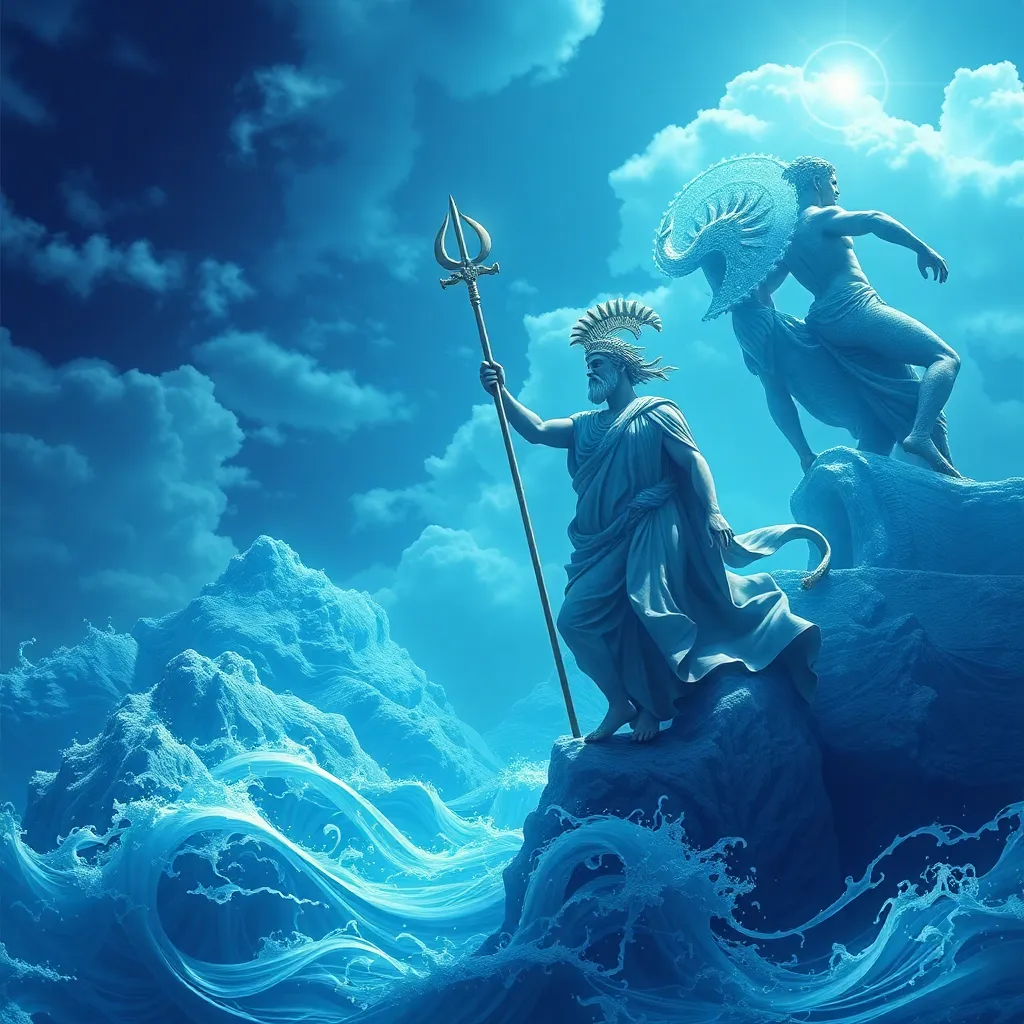The Symbolism of Perseus’ Journey: A Hero’s Quest for Identity
I. Introduction
Perseus, one of the most celebrated heroes of Greek mythology, is renowned for his daring exploits and formidable challenges. His tale is not merely a thrilling adventure; it is a deep exploration of identity, destiny, and personal growth. In hero myths, the quest for identity often takes center stage, revealing profound truths about the human experience. This article aims to delve into the symbolism embedded in Perseus’ journey, examining how his experiences contribute to his understanding of self and his ultimate transformation into a hero.
II. The Call to Adventure: A Search for Self
The journey of Perseus begins with a prophecy that shapes his fate. It is foretold that he will be the downfall of his grandfather, King Acrisius of Argos. This prophecy propels Perseus into a series of events that are both fateful and transformative.
- The Role of Prophecy: Prophecy acts as a catalyst in Perseus’ life, pushing him towards his destiny and forcing him to confront his fears and insecurities.
- Initial Reluctance: Perseus initially expresses reluctance to accept the burdens of his fate, illustrating the human struggle against preordained destiny.
- Quest as Metaphor: His quest symbolizes a profound journey of self-discovery, reflecting the universal search for identity that resonates with all individuals.
III. Encounters with the Divine: Gifts and Guidance
As Perseus embarks on his adventure, he receives assistance from various deities, highlighting the importance of divine intervention in his journey. These gifts not only aid him in his tasks but also serve as symbols of his growing identity as a hero.
- Significance of Divine Intervention: The gods intervene at critical moments, providing Perseus with the tools necessary for his success.
- Symbolism of Gifts:
- Shield: Represents wisdom and reflection, enabling him to confront dangers without direct engagement.
- Sword: Symbolizes courage and strength, essential traits for any hero.
- Winged Sandals: Reflect the ability to transcend limits and explore new realms of existence.
- Role of Mentors: Figures like Athena and Hermes guide Perseus, influencing his perceptions and shaping his identity through their wisdom.
IV. The Trials and Tribulations: Confronting Fears
Perseus faces numerous challenges that test his mettle and resolve. Each trial serves as a stepping stone in his journey towards self-realization.
- Major Challenges:
- Slaying Medusa, the Gorgon whose gaze turns men to stone.
- Rescuing Andromeda from the sea monster Cetus.
- Symbolism of Monsters: Creatures like Medusa represent inner fears and personal demons that must be confronted and overcome.
- Impact on Identity: Each victory bolsters Perseus’ confidence and self-identity, transforming him from a reluctant hero into a courageous warrior.
V. The Role of Companionship: Allies and Relationships
No hero embarks on their journey alone. Perseus encounters key figures that shape his experiences and contribute to his growth.
- Key Figures:
- Andromeda: Represents love and loyalty, anchoring Perseus in his quest.
- The Gray Sisters: Offer wisdom and guidance, highlighting the importance of collaboration.
- Importance of Alliances: Relationships forged during the journey enhance Perseus’ understanding of himself and the world around him.
- Companionship Symbolism: Allies symbolize support, shared burdens, and the interconnectedness of human experiences in the quest for identity.
VI. The Transformation: From Boy to Hero
Perseus’ journey is marked by pivotal moments that signify his growth from an uncertain youth to a formidable hero.
- Key Moments of Growth:
- Confronting and defeating Medusa marks a turning point in his journey.
- His marriage to Andromeda symbolizes the culmination of his quest and personal growth.
- Symbolism of Transformation: Transformation is a recurring theme in classical hero narratives, representing the evolution of identity through trials.
- Evolution of Identity: Perseus’ experiences shape him into a figure of strength, resilience, and self-awareness.
VII. The Return: Integration of Identity
The journey does not conclude with victory; instead, it leads to a return to his origins, where integration of his newfound identity occurs.
- Significance of Return to Argos: Perseus returns home, embodying the lessons learned and changes undergone throughout his quest.
- Symbolism of Homecoming: His return signifies reconciliation with his past and acceptance of his identity.
- Impact on Identity and Legacy: Perseus’ journey leaves a lasting imprint on his identity and establishes his legacy as a timeless hero.
VIII. Conclusion
Perseus’ journey is a rich tapestry of themes and symbols that reflect the complexities of identity formation. Through his trials, divine encounters, and relationships, he emerges as a multifaceted hero who embodies the quest for self-awareness. The broader implications of his story resonate within hero narratives, illustrating the universal human experience of grappling with identity. Perseus stands as a timeless symbol of the hero’s journey, representing the transformative power of adventure and the enduring quest for self-discovery.




